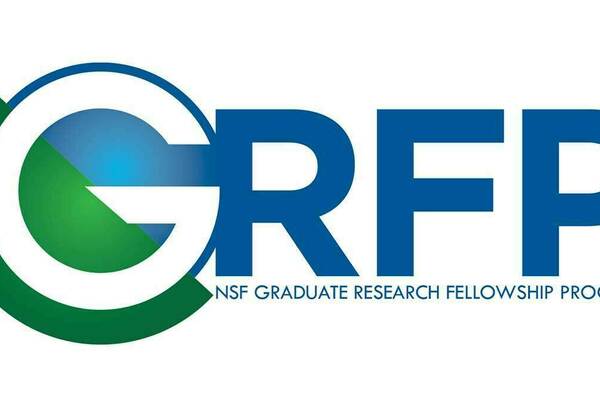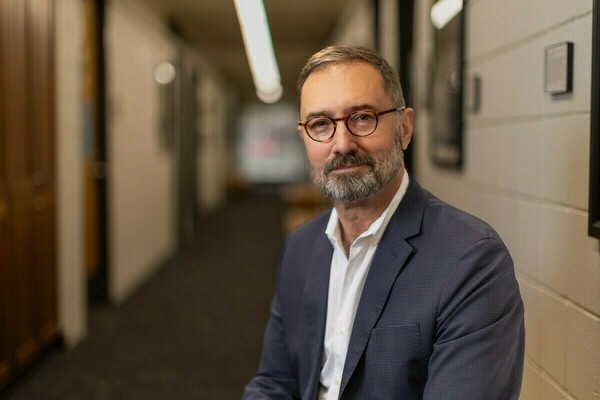
Notre Dame historian Darren Dochuk has started his five-year term as co-executive editor of Modern American History, the go-to journal for researchers exploring any facet of 20th-century United States history.
It’s a good fit for the Andrew V. Tackes College Professor in the Department of History, whose expertise is in the 20th century, specifically the intersections of religion, politics, energy, and the environment in North American and global contexts.
Dochuk is eager to be part of a journal that stimulates debate and new thinking and provides a big tent for inclusive and trailblazing conversations about the nation’s recent past.
“MAH is a unique and much-welcomed meeting place of sorts,” said Dochuk, who is also a faculty fellow of the Kroc Institute for International Peace Studies. “It encourages scholars to be more deliberate — when it’s relevant — in connecting the broader significance of their recent histories to the issues and debates of our current moment.”
Dochuk is the author of From Bible Belt to Sunbelt: Plain-Folk Religion, Grassroots Politics, and the Rise of Evangelical Conservatism, which won the American Historical Association’s 2011 John H. Dunning Prize and the Organization of American Historians' 2012 Ellis Hawley Prize, and Anointed With Oil: How Christianity and Crude Made Modern America. He’s also edited and co-edited several books, including Religion and Politics Beyond the Culture Wars: New Directions in a Divided America.
Dochuk and co-executive editor Sarah B. Snyder, a professor at American University, are prioritizing the journal’s commitment to graduate students and new Ph.Ds. Their scholarship is often the most innovative and path-breaking, Dochuk said, and their need to be published is critical.
Ph.D. students at Notre Dame will have opportunities to work as editorial assistants, as the University is serving as MAH’s host institution during Dochuk’s five-year term.
“One reason why I was eager to become co-editor is that it comes with exciting opportunities for graduate education in Notre Dame history,” he said. “These assistantships will allow our graduate students to learn the inside workings of journal publishing and engage some of the leading scholars and scholarship in the discipline, all rewarding professionally.
“MAH will certainly benefit from Notre Dame’s institutional profile and support, while Notre Dame History’s key role in production of the journal will reinforce its national and international reputation as a place where modern U.S. history is studied and taught at the highest level and with wide impact.”
Sean Raming, a third-year Ph.D. student in history and peace studies, is now working as a full-time editorial assistant, and graduate student Cleveland Coleman will join the editorial staff this semester.
Raming, whose research is centered on 20th-century U.S. military policy and its effects on American culture, was interested in the position because the journal has published works of many influential historians in his field.
“Between the exposure to excellent historical research and the experience behind the scenes of the editorial and peer review processes, it was an opportunity I couldn’t pass up,” he said.
The job has already expanded his professional connections and skills as he’s learning the publishing platform’s technical ins-and-outs and communicating with authors and reviewers.
“I like to think that slowly mastering the editorial side of publishing will make me a better writer and contribute to my own publications soon enough,” he said.
Cambridge University Press created MAH six years ago to help fill a gap in the discipline; it’s the only major, general periodical for academic historians of the U.S. working on the modern era.
The journal’s focus on the post-1890 period, Dochuk, said, lets authors tackle a range of subjects that readers — with a variety of specializations — can find stimulating and instructive.
In addition to providing historians with opportunities to share significant, creative scholarship, the editors plan to expand MAH’s presence beyond U.S. borders to broaden perspectives and make the journal more representative of the discipline’s diversity.
Dochuk said the journal’s close association with Notre Dame’s history department is a win-win for all involved.
“MAH will certainly benefit from Notre Dame’s institutional profile and support, while Notre Dame History’s key role in production of the journal will reinforce its national and international reputation as a place where modern U.S. history is studied and taught at the highest level and with wide impact.”


